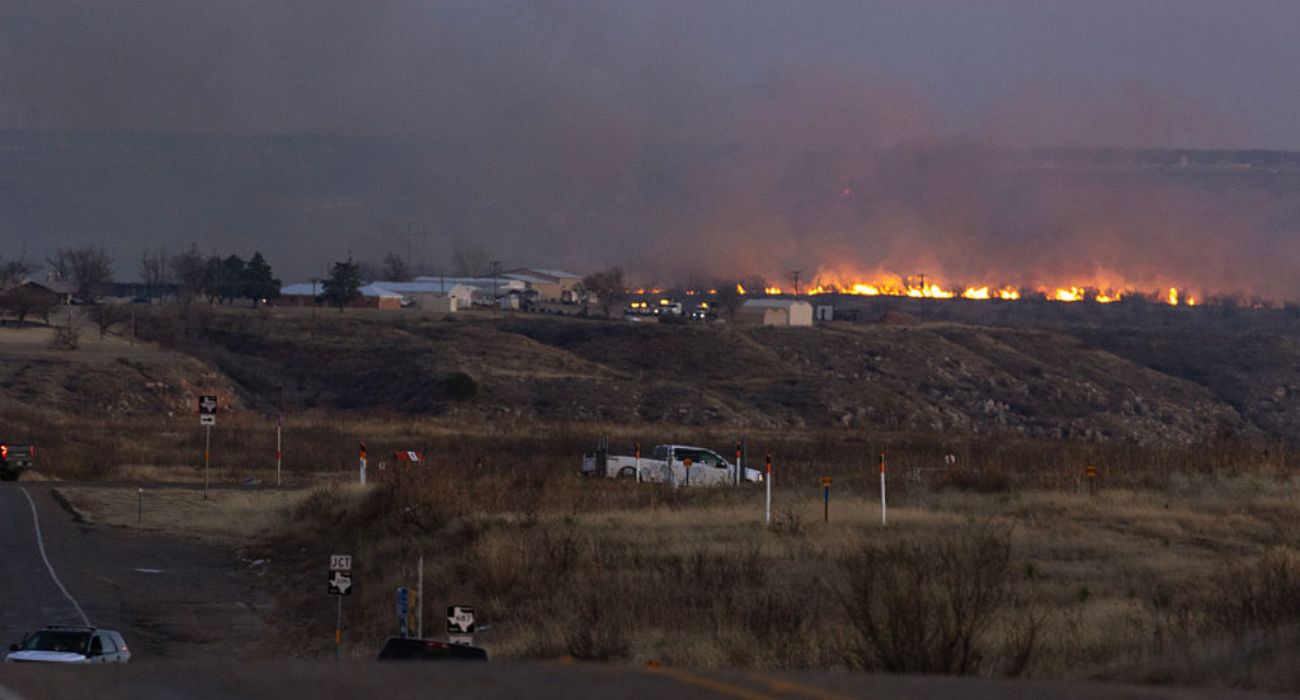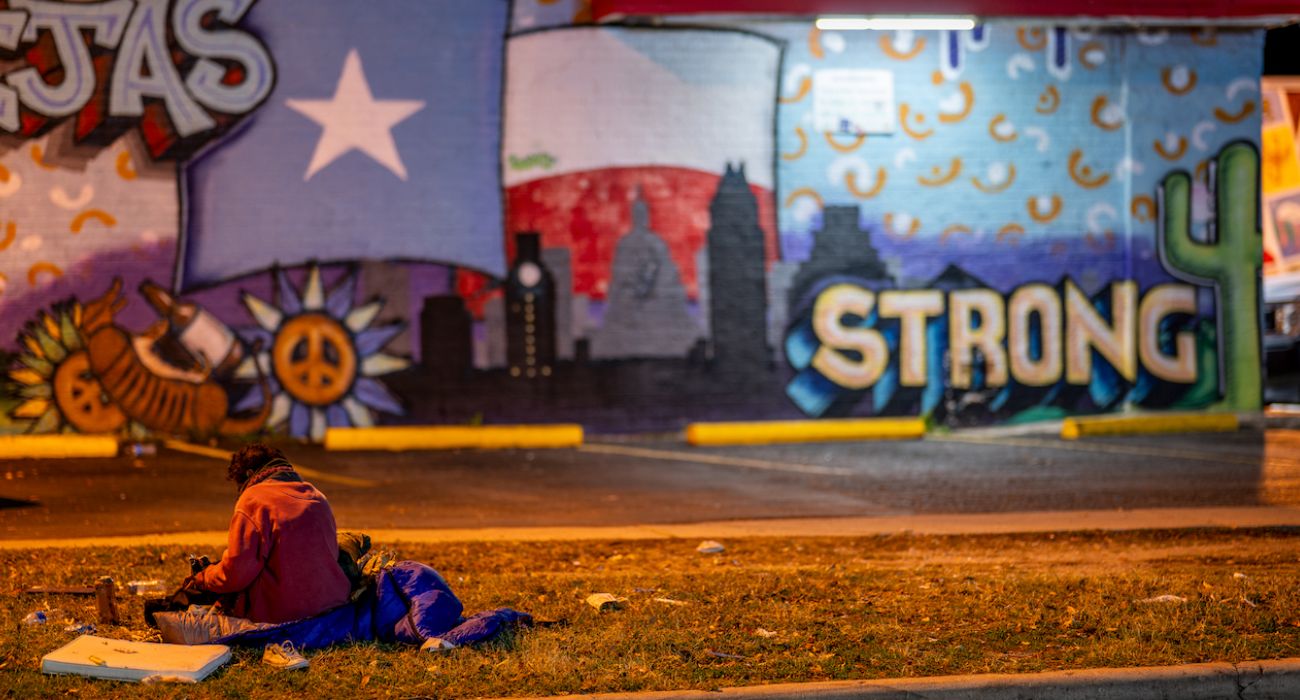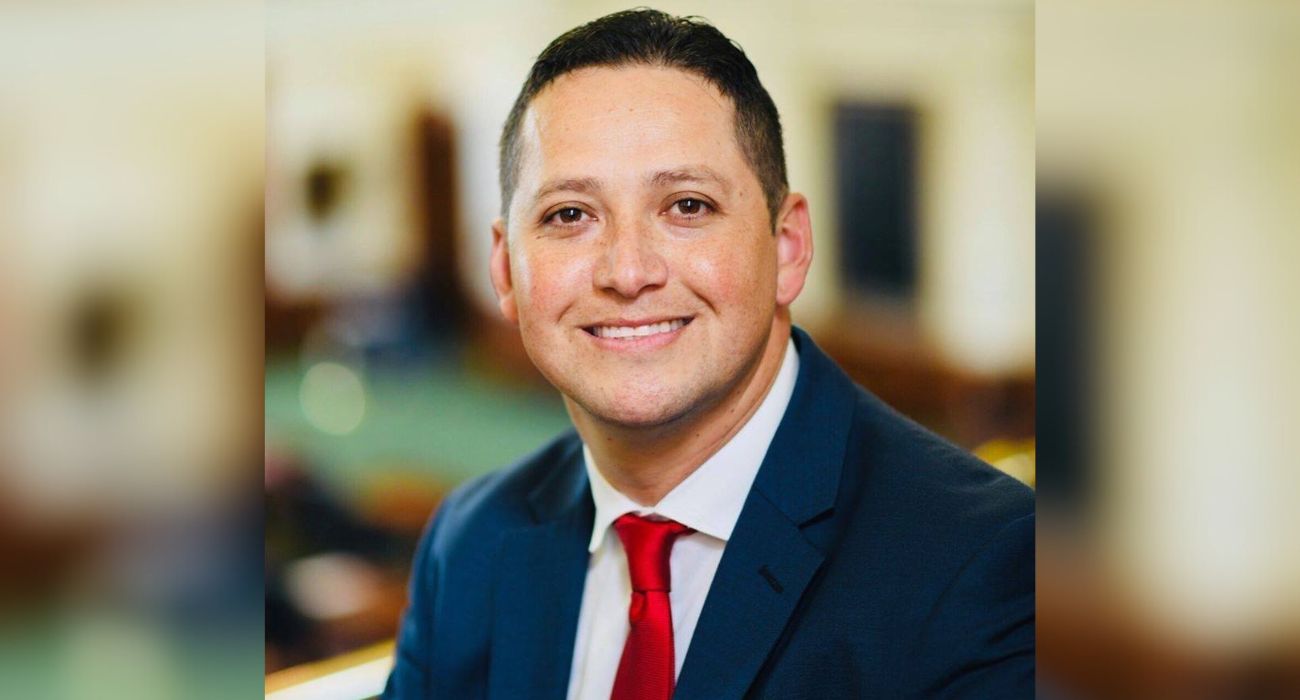Aid organizations are working to locate temporary housing and provide supplies for Texans affected by the Smokehouse Creek Fire, the largest wildfire in the state’s history.
The fire, which started last Monday, has burned more than one million acres and destroyed an estimated 500 structures, displacing hundreds of families and killing two people. The wildfire, which has stretched across five counties, continues to burn, fueled by unseasonably warm temperatures, gusty winds, and dry grass. On Sunday, the fire was about 15% contained, as reported by The Dallas Express.
Donations have been pouring into North Texas from across the nation. Federal and state agencies are on-site and are assisting non-profit groups and NGOs with distributing aid.
Some areas have received so much food, water, and clothing that they have stopped accepting further donations of these items. The town of Borger asked that people donate clean-up materials such as shovels, rakes, and garbage bags instead, as reported by NBC 5 DFW.
It is not yet known how many families have lost their homes, and as the wildfire continues to burn, more are likely to be impacted. The Hutchinson County United Way told NBC 5 that about 70 families from Fritch had reached out for help on Friday.
The Amarillo National Bank announced last Wednesday that it had created a disaster relief fund to accept and distribute financial donations and kicked in a large donation to the fund.
“Our bank today is announcing a $1 million gift to support the Wildfire Disaster Relief efforts going on in the northern Panhandle today. We are joining thousands of others who want to support those involved in the devastation. We know that there are so many questions left unanswered, but we want to make sure we can help as quickly as we can,” said William Ware, president of Amarillo National Bank, as reported by the Amarillo Globe-News.
Assistance is also needed to help with displaced livestock in the region. As the fire has burned across grazing land, thousands of miles of fencing have been lost. Texas A&M AgriLife Extension Service is asking for donations to help ranchers with livestock displaced by the fires.
“Donations of hay, feed, fencing supplies, cow feed, and milk replacer are needed to support livestock owners impacted by the devastating wildfires that have scorched ranchland across a large portion of the Texas Panhandle,” a statement from Texas A&M AgriLife reads.
“Texans are known for their generosity and deep values of Texas agriculture during times of need. This is certainly a situation where our neighbors and friends are needing assistance after these fires have threatened their livelihoods,” said Monty Dozier, AgriLife Extension Disaster Assessment Recovery program director in Bryan-College Station.
Cattle ranchers in the Panhandle are dealing with multiple issues from the fires. Some animals have severe burns to their hooves and udders and will likely have to be euthanized. Others are suffering from smoke inhalation that can cause pneumonia, from which the animal is unlikely to recover. The industry is currently in the calving season, so ranchers are turning to bottle-feeding calves to keep them alive.
The loss of grazing lands and hay means that even more animals will be culled as supplies are stretched thin. The impact on the beef industry, the largest agricultural industry in the state, will be impacted for years, according to Shane Pennington, a cattle rancher in Canadian who spoke with CNN.
Ranchers and families will get some help through the Federal Emergency Management Agency and state programs. Gov. Greg Abbott declared the region a disaster area last week, triggering programs and resources to help the people in North Texas.






